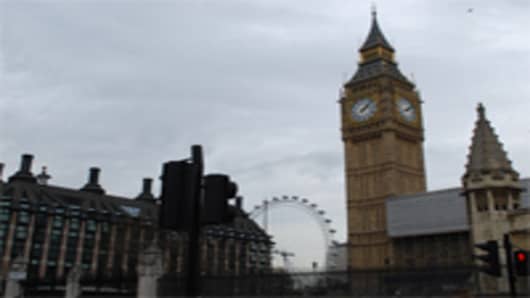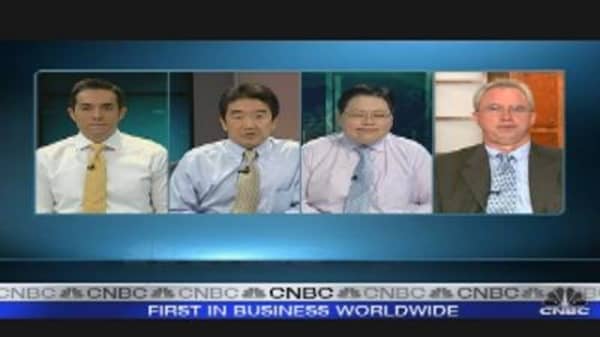Britain’s deficit-reduction program will remain on track this year because tax rises and spending cuts will not stunt growth enough to cause a double-dip recession, according to a large majority of economists polled by the Financial Times.
In an extensive survey of leading economists, most concluded that the austerity measures, including today’s rise in the rate of value added tax to 20 percent, were a big gamble, but one that was likely to pay off. Their biggest concerns were over Britain’s stubbornly high inflation and the risk of an intensifying euro zone sovereign debt crisis imperiling economic recovery.
In the survey of 78 economists, including 10 former members of the Bank of England’s monetary policy committee, 43 thought the deficit reduction plan would be “on track” by the end of the year. Only 13 of those who expressed a clear preference said an alternative “Plan B” was necessary.
The result will add weight to the Treasury’s view that Gus O’Donnell, head of the civil service, was wrong to call for preparatory contingency measures in a private memo, revealed by the FT last month.
Sir John Gieve, former deputy governor of the Bank of England, said: “I expect the fiscal figures to come in a bit better than plan unless external shocks drive us back towards recession.”
The main reason the government would probably be able to stick to its economic strategy, economists said, was the recovery had sufficient momentum to avoid a deep double-dip.
Howard Davies, director of the London School of Economics, said: “The public spending cuts will amount to a stiff headwind. Beating into it the economy will make slow progress.”
Less pleasing for the coalition government and the central bank is rising concern over high inflation, forecast to continue throughout 2011, partly as a result of VAT hikes. The MPC is already concerned that inflation will top 4 percent this spring and that the fear of ingrained inflation might force the Bank to raise interest rates.
Ray Barrell of the National Institute of Economic and Social Research worried that “we could be sitting on an inflationary volcano”, while Professor John Muellbauer of Nuffield College, Oxford said weaker sterling, rising commodity prices and a still fragile banking system, “will give the MPC the toughest dilemma it will ever have faced”.
Many of the economists surveyed said the Bank had lost credibility as a result of its poor recent inflation-forecasting record. Patrick Minford of Cardiff Business School said: “The Bank has drifted into dangerous nonchalance over stubbornly high inflation.”




